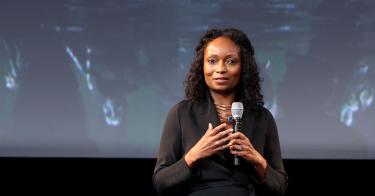“So, is DEI next?” Journalists and some Hill staffers have been asking that since the Supreme Court finally declared racial preferences in university admissions unconstitutional. The logic is impeccable: if racial preferences are unconstitutional, surely diversity, equity, and inclusion must be as well.
The answer is deceptively simple: yes, of course, DEI is unconstitutional. As even the New York Times all but admitted this week, when it ran a piece by a black ballet dancer expressing how all the sudden woke casting made him feel dejected. There is no non-racist, non-demeaning way to be DEI-compliant.
If you and everyone else know that your “achievement” is due to racial box-checking, then it’s not an achievement, and it brings you no joy. Much worse is when your attainments are richly deserved, and you know you had the talent and put in the hard work, but people still doubt it and may even talk behind your back.
DEI was, of course, not mentioned in the Supreme Court decision, which was strictly about college admissions. And different rules cover schools and places of work (in the Civil Rights Act, they fall, respectively, under Title VI and Title VII).
>>> Created Equal: A Road Map for an America Free of the Discrimination of Racial Preferences
But once the Supreme Court reminded the country, in a 6-3 decision, that, yes, our Constitution is color-blind, there was no way to put the genie back in the bottle. The court’s logic will apply in all other areas of life—and it won’t be limited to the college campus.
It’s inaccurate to say, though, that DEI’s demise comes because of the Supreme Court’s Students for Fair Admission decision on June 29. DEI was already on the ropes. The decision will only accelerate a knock-out long in the making.
As readers of this column will know, the architects and best-known retailers of DEI and so-called antiracism trainings and programs have spent the past few months complaining about the resistance they have met, and how business is down.
A slew of recent stories only confirms that DEI is falling on hard times.
Variety, the august industry rag of that wokest of all places, Hollywood, recently reported that no fewer than six heads of DEI have just left their position. Variety called it “a mass exodus of black women from senior leadership posts across Hollywood during the past few weeks.”
Variety added that many of those who departed “oversaw DEI (diversity, equity, inclusion) departments, putting them on the front lines of a larger effort to change corporate cultures and hiring practices.” They left Warner Bros., Discovery, the Academy of Motion Pictures, Netflix, and the BBC. So not exactly chump change.
The well-plugged-in industry publication cited sources that said the reasons were “a mixture of frustrations over a lack of financial support and resources,” and “unnecessary roadblocks that prevent these executives from having a meaningful impact.”
CNBC, also reporting on this story, said that the DEI churning has been going on for some time. It quoted executive search firm Russell Reynolds as saying that “the average tenure of chief diversity officers decreased from 3.1 to 1.8 years in 2021.”
>>> Let’s Celebrate Brown 2.0, Then Move to Family Formation
The Financial Times, too, reported on a slew of coming legal challenges to DEI following the Supreme Court’s decision. “The days of racial discrimination in hiring, especially through these DEI programs, are numbered,” Will Hild of Consumers Research, a conservative advocacy group, told the publication.
Human Resources Director’s newsletter warned in February that HR departments were growing irritated that no matter how hard they tried, desired outcomes always seemed out of reach. HR leaders, it said, “are increasingly exhausted and frustrated with their lack of progress in fostering diverse, inclusive, and equitable (DEI) workplaces.”
NBC News also reported that the DEI leaders who had been hired in the frenzy that overtook America after the BLM riots in 2020, “are being phased out, surveys indicate.”
All of which should bring the conversation back to the causes of what disparities do exist. The justification behind DEI is the fallacy that all racial disparities represent clear evidence of systemic racism. The only answer, then, is to fix outcomes through the ham-fisted expedient of DEI.
But if DEI doesn’t work, then we should look for other ways to bring true opportunity to all Americans, such as looking into school choice and having a real debate on family formation. The Heritage Foundation has just published a study delving into these topics.
This piece originally appeared in Restoring America by the Washington Examiner




